I'm a bit new in SQL Server and my goal is to create a view by joining 3 tables
Just a little context: At first, I only need to join two tables (fact table has dates) and my main goal is to get the week number and the corresponding values using the WEEKPART. However, I noticed that there might be a case where the first week of the year won't start on Jan 1. And using SET DATEFIRST on a view is impossible so I decided to have a calendar table and join it with the other two tables.
I have the following tables, Records and Book_Types:
Create table Book_Type(
ID int IDENTITY primary key,
Name varchar(100)
);
create table Records(
ID int IDENTITY primary key,
PurchDate date,
BookName varchar(100),
Book_TypeID int references Book_Type(id),
Amt decimal(5,2)
);
insert into Book_Type values ('A'), ('B'), ('C'),
('D'), ('E');
insert into Records values
('20200107', 'Book1', 1, 56.23),
('20200401', 'Book 99', 3, 195.09),
('20200917', 'Book 54', 4, 522.9),
('20200109', 'Book 34', 5, 604.32),
('20200106', 'Book 22', 1, 881.4),
('20200222', 'Book 14', 1, 355.66),
('20200924', 'Book 70', 1, 920.44),
('20201129', 'Book 12', 1, 344.86),
('20200220', 'Book 38', 3, 676.5);
When I inner join the three tables, I get the ff results: Code:
select
c.Week,
c.Year,
b.Name as BookType,
SUM(a.Amt) as TotalAmt
from Records as a
inner join
Book_Type as b
on b.ID = a.Book_TypeID
inner join
Testdb.Auxiliary.Calendar as c
on
c.Day = DAY(a.PurchDate) and
c.Month = MONTH(a.PurchDate) and
c.Year = YEAR(a.PurchDate)
group by c.Week, c.Year, b.Name
order by c.Week, c.Year, b.Name asc
Results:
Week Year BookType TotalAmt
2 2020 A 937.63
2 2020 E 604.32
8 2020 A 355.66
8 2020 C 676.50
14 2020 C 195.09
38 2020 D 522.90
39 2020 A 920.44
48 2020 A 344.86
I'm okay with the results however, what I want is to also display the weeks with BookType with zero values. I'm thinking of still getting the inner join and having a union all with a left outer join (the results that displays zero values) but I don't know how to get that.
My expected would be:
Week Year BookType TotalAmt
1 2020 A 0
1 2020 B 0
1 2020 C 0
1 2020 D 0
1 2020 E 0
2 2020 A 937.63
2 2020 B 0
2 2020 C 0
2 2020 D 0
2 2020 E 604.32
3 2020 A 0
3 2020 B 0
3 2020 C 0
3 2020 D 0
3 2020 E 0
4 2020 A 0
4 2020 B 0
4 2020 C 0
4 2020 D 0
4 2020 E 0
5 2020 A 0
5 2020 B 0
5 2020 C 0
5 2020 D 0
5 2020 E 0
6 2020 A 0
6 2020 B 0
6 2020 C 0
6 2020 D 0
6 2020 E 0
7 2020 A 0
7 2020 B 0
7 2020 C 0
7 2020 D 0
7 2020 E 0
1 2020 A 0
8 2020 A 355.66
8 2020 B 0
8 2020 C 676.50
8 2020 D 0
8 2020 E 0
and so on, so forth..
14 2020 C 195.09
38 2020 D 522.90
39 2020 A 920.44
48 2020 A 344.86
I need to get the type and weeks with zero values because once I achieved this, I have to add them together. In order to add them seamlessly, there must a be a line even if the TotalAmt is 0.
Any help is appreciated. Thank you!
